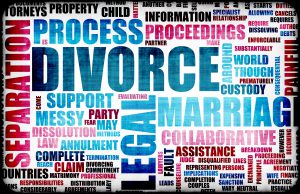What You May Not Know About Divorce In New Jersey
Thinking about divorce is an emotionally confusing time in anyone’s life. Now, you are contemplating filing for divorce and are facing weeding through the somewhat complex laws that govern divorce in the Garden State. There is a lot of misinformation out there, to be sure. Here are a few things you may not know about divorce in New Jersey:
It’s unnecessary for both spouses to consent to the divorce
You spouse does not have to agree to the divorce. But, he or she has to be properly notified that you have filed papers because in accordance with New Jersey law, they must have an opportunity to respond. They do not have the ability to stop the divorce from happening, simply because they don’t want it to happen. This is not one of the options when they respond.
You do not have to be separated to file for a divorce
If you file based on the grounds of irreconcilable differences, meaning that the marriage has broken down and cannot be saved, the only requirement is that you have had the problems in the marriage for at least six months before you filed to end your marriage. You can still be residing with your spouse during the problems and even after you file.
Divorce proceedings do not necessarily mean divorce trial
It is actually in your best interests to not go to trial. Trial is emotionally draining and can be extremely costly. It is better to approach your settlement with negotiation in mind and a willingness to work with your spouse. You want to maintain as much control over not only your case, but over your future. Leaving all the decisions to the judge takes away all of your power to make the decisions for your own life.
Both women and men can get alimony and custody
Family law in New Jersey are gender neutral. Both men and women can be awarded spousal support and which parent gets custody of the children depends on what is in the best interests of the child.
Your property will not be automatically split 50/50
The same goes for marital debts. New Jersey is an “equitable distribution” state, meaning, unlike states like California, property is not automatically divided 50/50. Courts divide property and debt based upon what is fair, or equitable, and each case is evaluated differently, because everyone’s divorce is different. For example, if you and only you contributed to the mortgage of your marital home, the division of that home will reflect your greater contribution to that asset.
The court does not care who files first
Many people believe that the first spouse to file the complaint for divorce obtains some sort of upper hand in the divorce proceedings, leading some people to “rush to the courthouse” to file their papers. This is not true. They simply become known as the “plaintiff” while the other spouse becomes known as the “defendant.” These titles carry no advantage in the divorce case.
Hiding assets is never a good idea
Some think that if they begin hiding assets or draining bank accounts they’ll be able to conceal this from their spouse and retain possession of the assets after the divorce. This is a bad strategy. It is highly likely that your spouse’s attorney will locate these hidden assets during the discovery period of your divorce. And, if you’re caught attempting to hide the assets, the court will be made aware of it.
You will not get more if your spouse cheated
It’s a common misconception that if your spouse cheated on you that you will get more in the settlement by way of money or property. New Jersey is a no-fault state and the court does not “punish” one spouse for cheating or “reward” another because their spouse was unfaithful. One small exception is if your spouse used marital money to fund the affair; in that case, your spouse may be forced to return the money to the marital account so it can be divided fairly.
You are not required to attend marriage counseling before you can get divorced
While there are some states that do require couples to attend marriage counseling, New Jersey has no such requirement.
All divorce and family law attorneys are not the same.
Just because an attorney is licensed to practice in New Jersey and indicates that they practice family law, does not mean that they are particularly qualified, knowledgeable or experienced in family law. Many attorneys practice several areas of law. It’s a good idea to select an attorney who devotes their practice only to family law, who has a great reputation in your community and who has experienced not only in the law, but in navigating your local family court system.
If you are considering filing for divorce, or if you or your spouse has filed for divorce, please contact us today to schedule your initial consultation with one of our compassionate and knowledgeable family law attorneys.
Read More:


